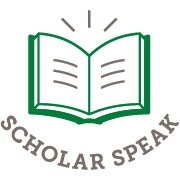Compiled by: Abbie Teel

Curious to explore the engaging and educational databases housed within the UNT Libraries catalog?
During this semester, three GSAs undertook research on databases of their preference for one of their projects. They delivered presentations covering various aspects such as background information, materials/collections, target audience, features, search functionalities, and more. I have compiled key highlights with the help of the presenters, from these presentations, including my own, so that anyone interested can easily access and explore them.
Name: Abbie Teel
Database: Everyday Life & Women in America c. 1800-1920
Link to PowerPoint Presentation
Audience: Adults: Researchers (i.e., historians, educators, higher education students, anyone interested in gaining insights into the daily lives and experiences of women in the United States during the 19th and early 20th centuries). It would be helpful for anyone who studies Women’s Studies, History, Literature, or Education.
Topics Covered: Cookery, Education, Farming, Fashion and Beauty, Marginalized Voices, Medicine, Political and Social Issues, Popular Fiction and Sensational Literature, Racism and Representations of Race, Religion, Women’s Advice Literature, Work
Features: This database encompasses a broad range of subjects through digitized materials like monographs, pamphlets, periodicals, rare books, and broadsides. These materials were sourced from the Sallie Bingham Center for Women’s History and Culture and The New York Public Library. Featuring a plethora of primary sources from both men and women, it vividly captures the essence of life and the narratives surrounding individuals during this specified time period.
Information for Searching: The database provides comprehensive guidance on effective searching. Three key tips are highlighted. First, for finding people, it recommends using the language of the time to unveil narratives. Second, utilizing filters to narrow down results based on document type, date, author’s name, library or archive, etc. Lastly, it introduces browsing pathways, allowing users to view documents in a Google-search-like format, explore search directories, and delve into thematic areas. Additionally, research tools such as contextual essays, periodical case studies, thematic areas (focused searches by theme, e.g., cookery), and a chronology (an interactive timeline) are available to enhance the research experience. Navigating this database effectively requires practice to become proficient in its use. I recommend that the target audience should possess a minimum level of education equivalent to that of a college student since it is a little tricky.
Subject Librarian: Julie Leuzinger (Women’s Studies Librarian)
Name: Ashra Londa
Database: LGBT Magazine Archive
Link to PowerPoint Presentation
Audience: Adults – Researchers, the Queer-Curious, and the Queer Community
Topic/s Covered: Homosexuality, Gay Rights/Culture/Literature/Movements, Gender Identity, Political Science, Women’s Interests, Psychology
Features: The LGBT Magazine Archive features a host of digitized paper resources (including magazines, scholarly sources, journals, and more) that span from the years of 1967-2020. The contents within each publication are queer-positive primary sources that derive from the LGBT community. These resources are vulnerable, personal, and unabashedly honest. They offer an incredible unfiltered glimpse into moments of queer history in the past 50 years, all items preserved in high quality and clearly archived.
Information for Searching: Keywords are the most effective for searching. Boolean operations (AND/NOT) work well. Be aware that explicit adult content cannot be filtered out of the search results. The facets limit time period, source type, and subjects. There is a save function to keep track of searched articles as well as a history function for easy management. Some publications do not have the full text.
Subject Libarian: Julie Leuzinger (LGBT+ Studies Librarian)
Name: Lakshmi Dubey
Database: Science Direct
Audience: Students/Researchers
Topics Covered: ScienceDirect offers access to a large collection of more than 16 million peer-reviewed papers from a variety of scientific fields. Precise investigation of academic content is made possible by its sophisticated search capabilities. Real-time updates provide researchers with access to the most recent articles, which is beneficial. Multimedia content is supported by the database, which improves the educational process. ScienceDirect provides tailored suggestions according on search history and user preferences. It also offers collaboration tracking and citation analysis features. Convenient study while on the go is further encouraged by mobile accessibility. ScienceDirect, with its vast collection, user-friendly interface, and cutting-edge features, is a leading platform that makes scientific discovery efficient and thorough for scholars and researchers around the globe.
Information for Searching: Enhance your search precision by leveraging advanced search options. Tailor your results by filtering based on factors such as publication type, publication year, author, and other relevant criteria. Additionally, explore the option to establish alerts for specific keywords or topics of interest, incorporating Boolean operators for even more refined search outcomes.
Subject Librarian: Pilar Baskett (Science Librarian)



Leave a Reply